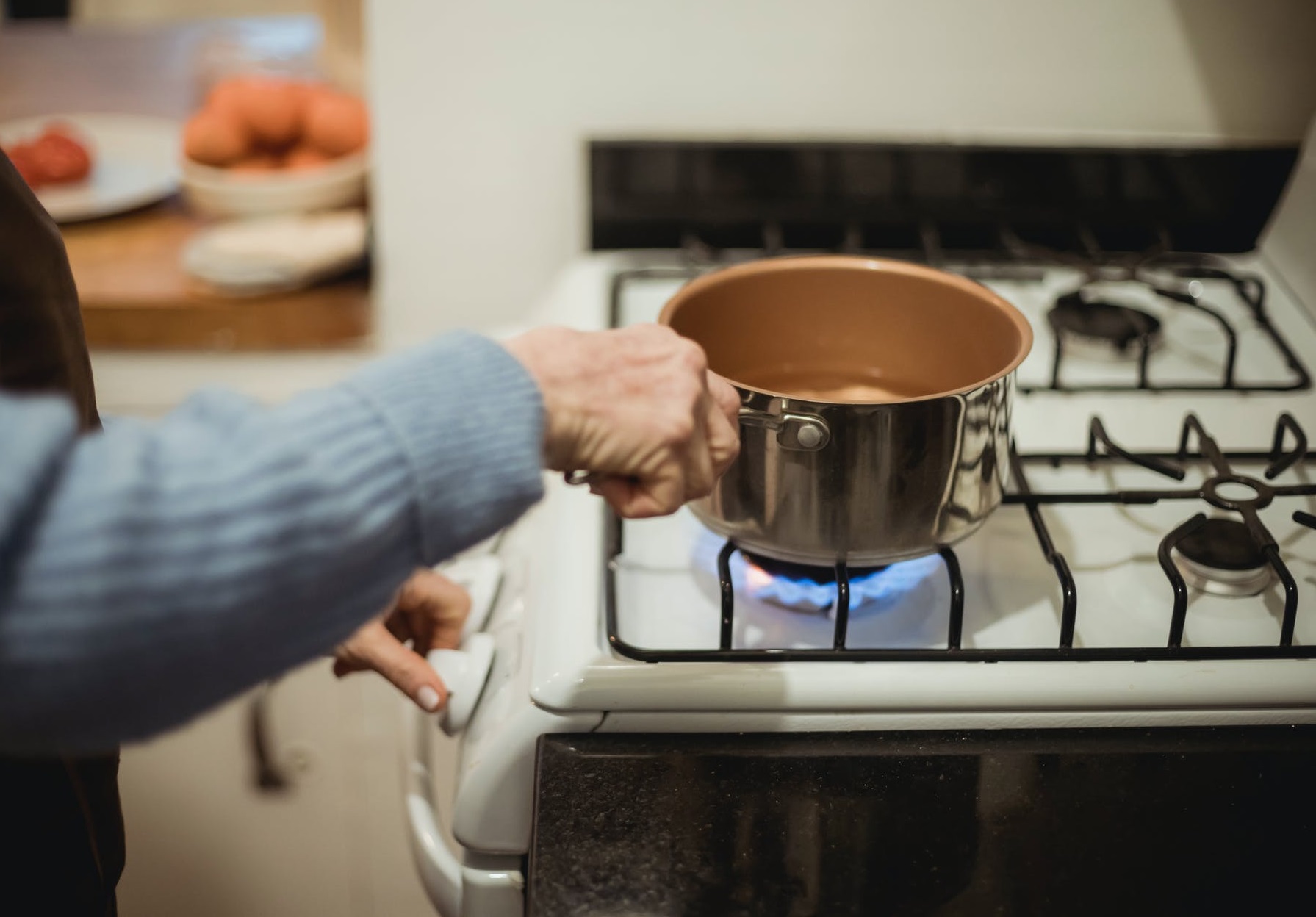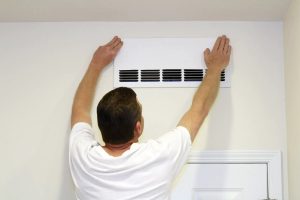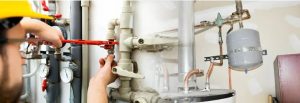Table Of Contents
Is Electricity More Expensive Than Gas?
Whenever it comes to powering your house or house appliances, you have two choices: gas vs. electricity. While both have advantages and disadvantages, it ultimately boils down to one inquiry: is gas less expensive than electricity? Gas is the most cost-effective alternative in the long run; but, owing to the upfront expenditures of buying and installation, it may take a while to realise savings.
As mentioned above, both gas and electricity have advantages and disadvantages, which you should consider when determining how to power your house. Both choices have safety hazards; but, with electricity, these may be more readily controlled by just calling an electrician when you feel there are any problems. Unless you buy power from renewable sources, neither option is ecologically sound.
This article will examine the operating expenses and the benefits and drawbacks of both electricity and gas to offer a more realistic response to the query – is gas less expensive than electricity?
Gas Vs. Electricity

Gas may be purchased in two forms by households: natural gas, which is extracted from the mains gas connections, and liquefied petroleum gas (LPG), which is supplied in big tanks that must be changed regularly. Natural gas is by far the more widely used of the two fuels, notably in Victoria, New South Wales, Western Australia, and South Australia. Gas is highly efficient and inexpensive, but it has restricted use and is mainly appropriate for heating water, heating systems, clothes drying, as well as cooking.
On the other hand, electricity has a far broader range of uses and may be utilised for all of the above and much more. As a result, while many residences may not own a natural gas connection, almost every home requires electricity. The question then becomes whether you should continue with electricity exclusively or whether it is more cost-effective to use both gas and electricity.
Running Costs
Electricity
Consumers are charged per kilowatt-hour (kWh) of power usage. Households will also be billed a ‘daily supply fee’ to compensate the supplier’s cost of delivering power to your home. Your state and distribution chain will determine the power rates you pay. The following are typical approximate power use rates for each state:
- 20 c/kWh in Queensland
- 20 c/kWh in Victoria
- 23 c/kWh in New South Wales
- 25 c/kWh in Tasmania
- 29 c/kWh in Western Australia
- 32 c/kWh in South Australia
Remember that the consumption rates indicated above are relatively standard for a single-rate tariff, and consumers on the duration or blocked tariffs may also be charged significantly different rates. Regular supply rates range from around 75c to around $1.30 per day, based on your region as well as tariff type.
Irrespective of how much electricity you consume, you must pay supply rates. Distribution charges will account for a larger share of your overall expenditures in low-usage homes. If you have a high-usage family, the situation is reversed.
Natural Gas
Consumers of natural gas are usually charged per megajoule (MJ) for the natural gas utilised. It is in addition to the set ‘daily supply fee,’ which ranges from around 65 to 85 cents each day. However, this varies considerably based on your state as well as the distribution network. The following are typical approximate gas consumption rates:
- 2.5 c/MJ in Victoria
- 3.5 c/MJ in Tasmania
- 4 c/MJ in New South Wales
- 4 c/MJ in South Australia
- 5 c/MJ in Queensland
- 15 c/MJ in Western Australia
As you have seen, natural gas is merely a few pennies per megajoule. The rates shown above imply a single rate tariff; nevertheless, it is typical for gas tariffs to function on a ‘block rate system,’ with the rate increasing progressively as you consume more gas.
Gas appliances are often more expensive to purchase and install, but they do have lower operating expenses than electric appliances. Nonetheless, specific modern electric equipment, such as split-system heating, is much more efficient and less expensive than many gas systems.
Because different brands and models consume differing amounts of electricity, it is crucial to consider the power efficiency ratings of both the gas and electric appliance you own or want to install. The more effective the equipment, the less electricity it consumes, making it possible to heat your house cheaply. There are alternative ways to cut your gas expenses, like switching off the gas system regularly, repairing it, and lowering the thermostat.
Similarly, there are strategies to save money on your power costs, such as using off-peak pricing and restricted loads. Therefore, you will have to decide whether it is still cheaper to install gas in your home than it is to operate exclusively electric appliances and if it is worth the higher installation cost. Moreover, if gas is not accessible in your location, then you cannot go for gas as an option for your energy needs.
Cost Comparison
Well, as per the above information, gas is the most cost-effective option, right? Yes, but that is not the complete story. Indeed, a megajoule of gas is far less expensive than a kilowatt/hour of electricity. However, a kWh also contains significantly more energy than an MJ. A standard electric oven, for instance, uses roughly 2.3 kWh of power per hour, but a typical gas oven uses about 12 MJ per hour.
Assuming a 25 c/kWh electricity use rate and a four c/MJ gas usage rate, an electric oven would cost about 58c per hour to operate, while a gas oven will cost about 48c per hour. Even though this looks to be a minor difference at first glance, the gas savings in such a scenario might save you a significant amount of money over time.
Appliance Purchasing Costs
Although gas appliances are less expensive to operate, they are often more costly to buy. An electric powered oven, for instance, will typically cost around $400 to $1,500, whereas a gas oven will cost around $900 to $2,000. This implies that deciding whether to use electricity or gas boils down to if you need to save money now or later.
If you are a frequent cook or just like to turn up the heat, installing gas appliances may be less expensive in the long run, assuming you do have a natural gas connection. It is vital to remember that you will have to pay two daily supply prices if you have both an electricity and a natural gas connection. This implies that you should solely consume gas if you believe you will be using enough to make the utilisation rate savings outweigh the increased supply expense.
How Much Does A Natural Gas Connection Cost?
Households can buy one of two types of gas. Natural gas, which is delivered via the leading gas network, is the most popular choice. Liquefied petroleum gas (LPG), which is supplied in tanks, is also available. However, natural gas is the most commonly used of the two.
Gas is cheaper than electric, but its applications are restricted to hot water, tumble dryers, fireplaces, heaters, cooking, as well as the classic BBQ. On the contrary, electricity powers a far more significant number of appliances as well as the structure itself.
If you enjoy the concept of natural gas yet do not already have a connection, you will need to arrange to get a connection with your local area’s gas distribution network. The cost of a gas connection may range from around a few hundred to a few thousand dollars, based on the network as well as the intricacy of the work required.
If you are not anywhere near a natural gas source, your only alternative may be LPG installation. Please remember that you will need to obtain consent from your landlord before installing any gas hookups or appliances if you are renting an apartment.
What Is More Powerful – Gas Or Electricity?
Electricity is more powerful than gas. This indicates that you have to use more gas to get the same amount of electricity. One kilowatt-hour (kWh) of electricity requires 3.6 megajoules (MJ) of gas.
When deciding what new appliances to purchase for your house, a little arithmetic might help you find out which one consumes the most energy. There are several appliance energy use calculators available to assist you. However, given that gas is cheaper than electricity in Australia, it is easy to find out (approximately) what would end up costing more if you know how much energy the appliances consume.
Pros And Cons Of Electricity And Gas

Water Heating
A gas system is much more expensive to acquire and set up than an electric system, but it is less costly in the long term. This is because hot water consumes a lot of energy. As such, gas systems may save households a lot of money.
The cost of ownership of an electric heater is relatively low, but the cost of operation is high. It should be noted that homes get a ‘controlled load’ tariff, which can lower the operating expenses of electrical hot water systems.
Space Heating
Gas heaters heat small to moderate rooms fast and effectively. They are practical and, on the whole, cost-efficient. To deal with harmful combustion gases, you need to also install a flue to effectively direct the gases out of your house. Households have more options for electric heaters than they do for gas heaters. The choice comes down to your preference between gas or electric heat.
Cooktops
Gas cooktops heat much faster as compared to electric cooktops. They are significantly more costly than electric cooktops but have slightly lower operating expenses. Electric cooktops are simple, and clients may select from a wide variety. They are less expensive to buy but somewhat more expensive to operate compared to gas cooktops.
Oven
Like stovetops, gas ovens heat faster than electric ovens, but they are costly to buy. Ovens consume a lot of energy; therefore, a gas oven might save you a lot of money in the long run. Electric ovens are more versatile and generally have more functions than gas ovens. Nonetheless, they are much more expensive to operate.
Dryer
Gas clothes dryers need a flue to prevent dangerous gases from contaminating the home. Like the other gas appliances on this list, gas dryers are costly to purchase but inexpensive to operate. Electric clothes dryers consume a lot of electricity, but a few energy-efficient versions are on the market for clients wishing to save cash.
Energy-Efficient Alternatives
Remember, however, that not all appliances are created equal. For instance, while calculating the operating costs of standalone heaters, you can usually anticipate paying a little cheaper in electricity, provided you possess a reverse-cycle air conditioner and heat pump. Furthermore, take note of an appliance’s energy-saving star rating. The higher the stars an appliance gets, the less gas or electricity it requires to operate.
Although energy-efficient versions are sometimes more expensive to buy upfront, you might save money in the long run due to lower operating expenses.
Reasons Why Gas Is Better Than Electricity

This energy issue has a solution: natural gas. It offers a dependable alternative to inefficient electrical infrastructure and is poised to play a significantly larger part in resolving our present energy problems. So, what makes gas the superior choice?
Gas Is Always Available When You Require It
Natural gas infrastructure enables distributors to send gas to clients on-demand, avoiding the supply and dependability difficulties that plague electricity. In reality, Australia’s natural gas network has just one unexpected interruption per four decades on average when it comes to dependability. This implies that if your home is linked to natural gas, you might still have access to the power you need to heat your house, clean your utensils, as well as take a hot shower whenever a blackout occurs.
Gas Is About 40% Less Expensive To Use Than Electricity
Natural gas has always been reasonably priced, and it is expected to remain so in the future. Contrary to electricity, where more significant usage raises your tariff, the more gas appliances you purchase and install, the more money you may save. This is because, in most circumstances, the price per unit of gas lowers as usage rises. While gas appliances may be more expensive to install at first, operating expenses are often cheaper. This implies that utilising natural gas is virtually always less expensive in the long run.
Take, for instance, a single cooktop and hot water system functioning in a typical Australian home for a year. If it operates on electricity, the running costs will be around $1,529 per year in South Australia and about $1,196 per year in Victoria. On the other hand, if it operates on natural gas, the running costs will be around $971 per year in South Australia and around $701 per year in Victoria.
Gas Emits Much Fewer Greenhouse Gases Than Electricity
Sure, natural gas is fossil energy; however, its chemical structure is very different from that of coal; hence its emissions are substantially lower. As a result, it is significantly less harmful to the environment compared to electricity.
The following are some concrete reasons why natural gas is a preferred environmental choice:
- A gas-powered hot water system generates 62% less Carbon Dioxide (CO2) than an electric counterpart in South Australia and 83% less CO2 compared to an electric counterpart in Victoria. The emissions from a natural gas-powered hot water system are similar to those emitted by a system that uses a 50/50 renewable energy/coal electricity mix.
- Although gas now provides about 44 per cent of Australia’s residential energy, it only accounts for 13 per cent of household greenhouse gas production.
- Compared to electricity, gas has a more significant yield percentage from extraction through distribution (90 per cent), making it significantly more efficient.
- According to International Gas Union data, the comparable energy of a natural gas power production plant requires 60 per cent more coal to be consumed in the oldest power-generating facilities.
Should You Choose Electricity Or Gas?
Gas is often less expensive than electricity; therefore, if you have a natural gas connection, it will frequently be better to use gas over electricity whenever possible. However, if you just have access to electricity, the decision between the two energies becomes a bit more complicated. If you have access to a gas connection and can manage to spend a little more on gas appliances, shifting to gas might possibly save you money in the end — assuming you consume enough of it to warrant your investment.
Because it will take a while for the gas savings to warrant the installation cost, it is not suggested for clients who do not intend to stay at the same house for an extended period. Overall, the choice between gas and electricity is a matter of personal preference. However, contacting and consulting a professional plumbing company to assist you if you consider going the gas route will be a prudent idea.









